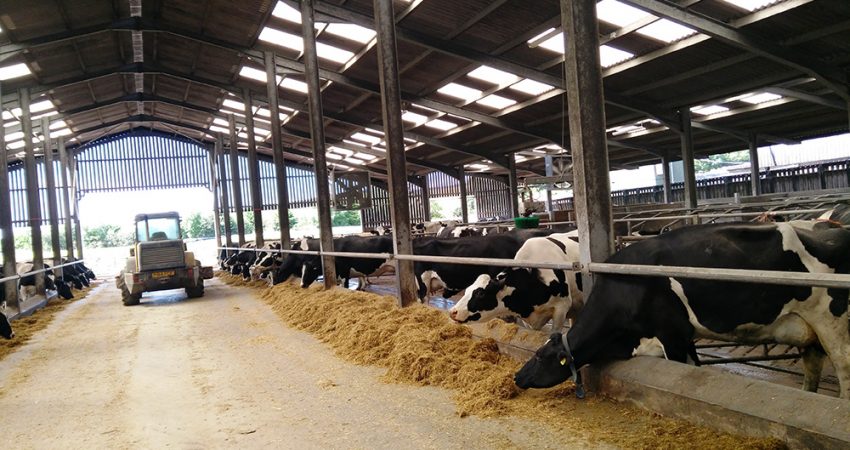
Dairy Cow Welfare
This project included work on whey-based calf milk replacers for dairy replacements, the use of digital technologies to encourage the move to data-driven livestock management, hair cortisol as a stress diagnostic marker, and a new technology to provide clean water to livestock. This involved working with five SMEs, and although the project was affected by Covid, its outcomes were achieved.
The calf trials showed that using processed milk by-products (whey) as a milk replacer was effective, as was using prebiotic additives and functional proteins to allow calves to resist disease and achieve target growth rates.
Our rumen bolus work demonstrated the difficulties of transferring existing technologies across to the livestock sector. (Cows have four stomachs; the rumen is the first one to receive whatever it’s passed from the oesophagus.) We sought to use its temperature data to predict and therefore manage calving, diseases and oestrous activity (i.e., when the cow’s receptive to mating).
The hair cortisol work established the ideal sampling site in terms of convenience, as well as consistency of cortisol levels.
The calf trials were fully utilised to enhance the curriculum, meaning students gained practical and data-handling skills. Their involvement in ‘real life’ research saw significantly improved outcomes, and three research papers have been produced as a result.
Key to this initiative’s legacy is its demonstration of Duchy College’s capacity to carry out meaningful research for dairy farmers and the whole sector. This explains animal nutrition company Volac International Ltd’s continuing involvement in the calf work. The business is also keen for our team to oversee additional trial work at the Bicton College farm (also part of The Cornwall College Group) in 2022.
The project also led to a successful bid with Cornwall Council, which involves evaluating the dairy performance and greenhouse gas emissions associated with different feeds and slurries, as well as a knowledge-transfer programme to reduce Cornish dairy farmers’ carbon footprint.
Three further regional companies are interested in sponsoring research at the Future Farm facility, along with two national livestock breeding companies and a regional SME to test its biological silage additive to reduce cattle slurry emissions.
For further information, please contact Rachel Abrahall at; rachel.abrahall@duchy.ac.uk / 07877035795 or Alex Huke at a.r.huke@exeter.ac.uk / 01326 255844.
Impact
The range of trials within the Dairy Cow Welfare project included work on whey-based calf milk replacers for dairy replacements, the use of digital technologies to encourage the move from intuitive to data-driven approaches to livestock management, hair cortisol as a dairy cow stress diagnostic marker and a new technology to provide clean water to livestock. This involved working with five SMEs, four of which were utilising their technologies within the agricultural sector for the first time.
Although the work was affected by the Covid pandemic through delays in the construction of the Future Farm Dairy research and restrictions on non-essential staff working with livestock at the Duchy College farm, outcomes were achieved.
The series of calf trials demonstrated the effectiveness of using processed milk by- products (whey) as a milk replacer for dairy replacements, the positive effects of prebiotic additives and functional proteins to allow calves to overcome disease challenges and so achieve target growth rates.
The rumen bolus work demonstrated the difficulties of transferring existing technologies across to the livestock sector. The aim was to utilise rumen temperature data to predict calving, disease onset and oestrous activity with more accuracy to allow more precise management interventions. The initial work on covering on-farm practicality demonstrated clearly the difficulty of continued data transmission of data from one cattle bolus system and the lack of ability for the data receptor system to receive data on a second system.
The hair cortisol work established the ideal sampling site in terms of ease of sampling and consistency of cortisol levels.
The calf trials in particular were fully utilised to enhance the curriculum, enabling students to gain practical livestock and data handling skills. Data was utilised to reinforce statistical analysis and in the research projects of the degree-level students. Indeed the involvement in ‘real life’ research encouraged students to attain significantly improved outcomes.
Three research papers have been produced as a result of the research carried out.
Legacy
A key part of the legacy of the dairy cow health and welfare initiative is the demonstration of Duchy College’s capacity to carry out meaningful research for dairy farmers and the dairy sector as a whole. This is demonstrated by the desire of the animal nutrition company, Volac International Ltd., to continue its involvement the calf work, begun in collaboration with Saputo Dairy UK over the coming years. Indeed, it also wants the Duchy College team to oversee the protocols and delivery of additional trial work at the Bicton College farm (also part of The Cornwall College Group) in 2022.
A further demonstration of the legacy is work secured through a successful bid with Cornwall Council, the Intereg-funded Agriculture Bas Carbon Dairy (ABCD). This involves evaluating different feeds on dairy performance and greenhouse gas emissions (GHG) from the cows and the slurries and an associated knowledge transfer programme to reduce the carbon footprint of Cornish dairy farmers.
Three further regional animal nutrition companies have expressed their interest in sponsoring research at the Future Farm dairy research facility, along with two national livestock breeding companies and a regional SME to test its biological silage additive to reduce cattle slurry emissions.
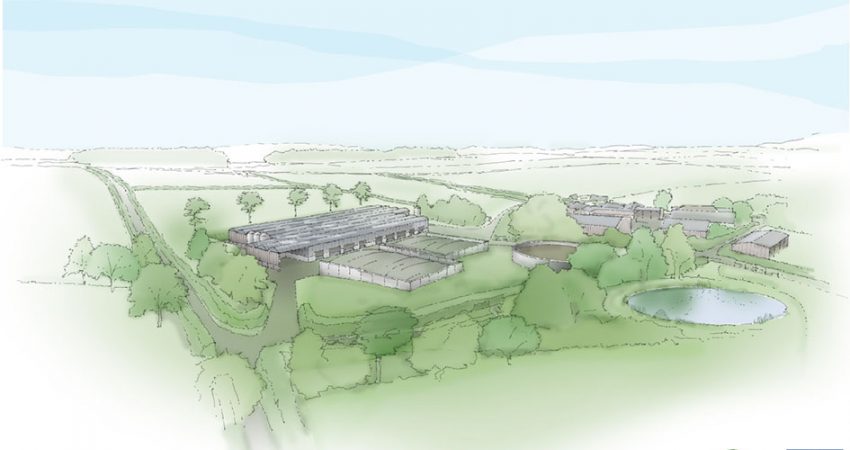
Future Farm Dairy Research Facility
Impact
The initial impact of the construction of ‘Future Farm’ (FF) was the appearance of a series of aesthetically pleasing 1950s–style ‘Dutch barns’ near Callington in the autumn of 2020. The building was indeed of Dutch design; but rather than storage for hay and straw, it was in fact the state-of-the-art ‘Future Farm’ dairy research facility at Duchy College.
As the principal physical asset arising from Agritech Cornwall, ‘Future Farm’ was developed to be not only a working farm, but also a teaching and dairy research facility. It was carefully designed to have a huge impact on the important South West dairy production industry – the most important sector within agriculture, equating to 31% of the region’s total agricultural output and 39% of national dairy output.
The use of high-quality synthetic translucent roof sheeting allowed improved daylight entry without extra radiant heat being created inside the building. Furthermore, its low weight compared to conventional roofing materials permitted the use of automatic mechanical ventilation systems to maintain optimum relative humidity. This precluded the requirement for a typical single span cow cubicle shed construction with its central ridge outlet to facilitate natural ventilation. This permitted a significant reduction in the steel required for construction and therefore reduced financial and carbon cost compared to a more conventional design in addition to the lower profile and visually appealing building.
Inside the building, the cow cubicles were designed using optimal dimensions from flexible materials to allow cows to stand up and lie down without fear of injury and with mattresses for maximum cow comfort. Animal welfare was further enhanced through the provision of an automatic feeding system capable of feeding a total mixed ration up to five times per day, which with the provision of optimal feed spacing and feed rail height, ensured that cattle always have access to high quality feed.
High standards of animal health are maintained through the use of the latest milking technology in the milking parlour including automatic cluster removal and flushing to reduce mastitis incidence. Rubber matting along with automatic scrapers and non-slip grooves in the concrete floors and slatted covers to slurry channels ensure hygienic conditions are maintained and lameness controlled.
The immediate impact on the dairy herd in terms of animal welfare has seen an increase in cows lying (from a sub-optimal 60% to an optimal 80%) and ruminating with improved rumen fill (score 3-4) following the move to FF*. In terms of animal health, herd somatic cell counts were reduced from a sub-optimal 178 000s/ml indicating significant mastitis infection to 62 000s/ml indicating extremely low mastitis infection.
*All Comparisons between October 2020 and October 2021 – herd moved in November 2021
The impact on production parameters includes an increase of 400 litres/cow per annum (7,900 to 8,300l), a milk protein increase from 3.26 to 3.38% and butterfat from 3.60 to 4.20%. This brought in an extra £40, 000 income for the unit. This is without taking into account the increased fertility (calving interval reduced from 414 to 399 days) and lowered culling rate (from 40% -double AHDB target- to 30%), the reduced feed usage, and an increased margin over purchased feed /litre. This links into a much improved carbon footprint/litre of milk produced.
Although Covid-19 precluded a large official opening of the facility, its impact is already demonstrated by a wide variety of farmer groups requesting to visit the facility e.g. local Grassland Societies, Young Farmer Clubs along with animal nutrition and breeding companies. Further evidence is the record number of students enrolling in autumn 2021 at Duchy College (the highest number ever).
*
Legacy
The legacy of the 220-cow Future Farm Dairy Systems Research Platform arises from the development of the existing commercial dairy into a specialist and purpose built research facility. It will facilitate the segregation of the herd into three groups or mini-herds, which can be managed or fed different diets for research purposes. The infrastructure including a LoRaWAN system to connect sensor-linked devices within the facility and across the wider College Farm, enables inputs and outputs to be measured, recorded, compared and reported for each mini herd. The unique feature of the set-up is its ability to segregate and store slurry separately from each of the groups. This enables businesses and research institutions to develop, trial, pilot and market test new products and services in the application of technology to animal health and welfare in dairy cattle and nutrient recycling. Future Farm is capable of full profitability, sustainability, nutrient and animal health and welfare analysis within its three parallel mini-herd management systems.
FF enables the demonstration of best practice, analysis of slurry and forage samples, the execution of field trials around the application of organic amendments, run-off and sward composition and the hosting of evidence-based farmer knowledge exchange events. The facility allow farmers to access cutting edge science to track nutrients in manure from source to end use accurately and underpin the development of strategies aimed at improving dairy farm efficiency, reduce its carbon footprint and deliver other environmental enhancements.
FF directly supports the dairy sector to engage with research, and interacts with a range of local, regional, national and international organisations including:
- The Centre for International Excellence in Livestock (CIEL), which is closely linked to the development. Duchy College has ‘Category A’ membership of CIEL which provides a focused gateway to 12 world-class national research centres to develop industry-needed solutions as well as commercial trial farms for real world results.
- The wide scale existing knowledge exchange network of milk producers, both through the Agriculture and Horticulture Development Board (AHDB) and directly across the south west (10,000+), developed through the work of Duchy College’s Rural Business School (RBS).
- Resources to monitor the economic viability and efficiency of milk and other agricultural production systems through the RBS’s Farm Business Survey team (part of Rural Business Research).
- 50 South West farm veterinary practices across the six SW counties.
- The dairy supply chain including agronomists, animal nutritionists, breeding specialists, consultants and milk processors.
- The next generation of dairy farmers, managers scientists, and staff through educational programmes ranging from apprentices through to Masters level studies.
- The Dairy4Future network of 10 experimental dairy farms across Western Europe.
- Engagement with a network of regional research partners i.e. Rothamsted Research, University of Exeter and University of Plymouth through the Agritech Cornwall project.
- A broad range of SMEs from across the agri-tech sector.
- Open up opportunities to engage at a local, regional, national and international level with ground-breaking research opportunities.
The first major research initiative to be delivered utilising the facility, secured through a successful bid with Cornwall Council has been the Intereg-funded Agriculture Bas Carbon Dairy (ABCD). This involves evaluating different feeds on dairy performance and greenhouse gas emissions (GHG) from the cows and the slurries and an associated knowledge transfer programme to reduce the carbon footprint of Cornish dairy farmers.
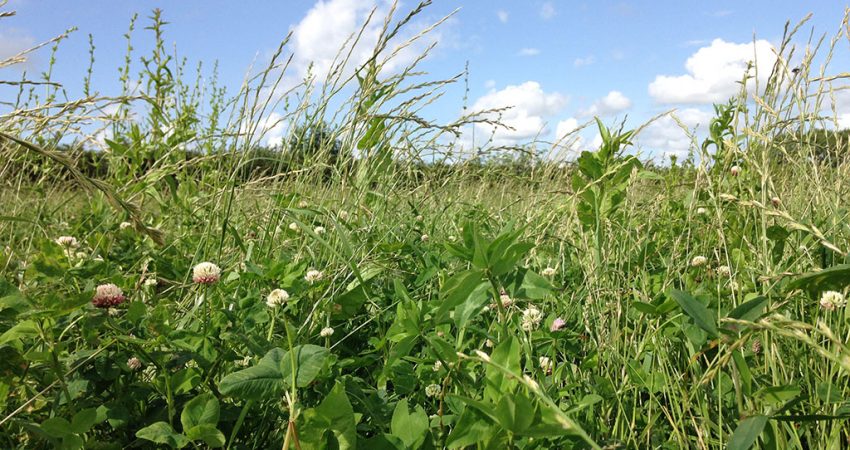
TOMS
Toolbox of Multi-species Swards (TOMS) – DC
Most of Cornwall’s farmed grassland is rye-grass and clover, but multi-species swards offer many potential benefits, whether it’s improved soil quality and carbon sequestration, less need for artificial nitrogen, or enhanced parasite control and biodiversity. However, information about these leys is limited, especially information relevant to Cornwall’s particular environmental and economic conditions. This project – a collaboration between Duchy College and Rothamsted Research – aimed to rectify this.
We worked closely with Cornish businesses, with a specific remit to address their research needs; everything the project undertook was geared to find answers to their questions around, for example, yield and forage quality, macro and micronutrient supply and soil sampling. All field work was completed on-time and within budget, although some adjustments had to made in Spring 2020 in light of the Covid pandemic.
Overall, the project has significantly increased the available knowledge around growing herbal leys in Cornish soils and climatic conditions. How to establish them, how to ensure they thrive, how to make them more cost-effective: the research has resulted in clear and practical takeaways which all interested parties can use and from which they can benefit. In addition, these interested parties, including collaborating business partners, have all been brought together by the project, giving them excellent networking opportunities and the chance to learn from each other.
Dependent on funding, these collaborations and transfers of knowledge will grow, endure and bear further fruit. This will not just increase the depth and spread of knowledge, but will also help further establish Cornwall as a leading area for research into multi-species swards, and enhance the county’s forage research capacity for many years to come. Relatedly, the project has clearly demonstrated to a number of businesses the practical benefits of engaging with Research & Development.
Multi-species swards are clearly complex; so much so that conditions can vary between fields as much as they can between farms, highlighting the need for significant increases to the body of available knowledge.
This project has not just begun to address the need to add to that fund of information and data, but promises to add to it in such a way as to leave a lasting legacy in terms of forage-based research in the south west of England and nationally.
For further information, email Gemma Eales gemma.eales@duchy.ac.uk
Toolbox of Multi-species Swards (TOMS) – RR
Agri-tech Cornwall hosted a Grazing Innovation Workshop in late 2017; delegates were asked to list the three biggest issues facing the grazing livestock industry in Cornwall.
Responses encompassed sward diversity, animal health, milk quality, the need to produce good-quality, year-round forage and to better understand micronutrients, as well as innovating tools to help all involved select and manage mixed species leys to ensure trace elements and year-round nutrition. This feedback was the impetus behind, and became the focus of, the project.
The consensus was also that the research should aim to develop a multi-species sward decision-support tool which would give farmers, advisers and seed merchants practical advice. How different species perform across a range of farms and on different soils; how to determine what a mixture’s optimal species complexity might be: once research provided the evidence to answer such questions, then such a support tool could be developed. This would adapt to various desired outcomes and growing conditions; it would also feature a glossary of species and imagery, give information on cultivation and establishment, and identify suitable species, with evidence of their benefits (from the nutritional and economic, to animal health and biodiversity).
This toolbox would communicate all this in suitable way for commercial use by agronomists, veterinarians, nutritionists and other farm-focused businesses advising farmers on the use of multi-species swards.
Over and above this, the project also helped to forge links between businesses and researchers, while increasing the number of businesses engaged in knowledge exchange, research and innovation.
Agri-Tech Cornwall’s Theme 1 was ‘Animal health and welfare in dairy cattle’, against which TOMS delivered, just as it did against Theme 2, ‘Maximising soil, water and nutrient use efficiency for sustainable crop and livestock production’. Theme 3 was ‘Improving the productivity of speciality crop production’ and Theme 4 ‘Utilising technology to drive agri-tech productivity and innovation’, which means TOMS not only delivered against all stated Themes, but leaves behind the infrastructure, engagement and expertise which guarantees similar delivery for Cornwall long into the future.
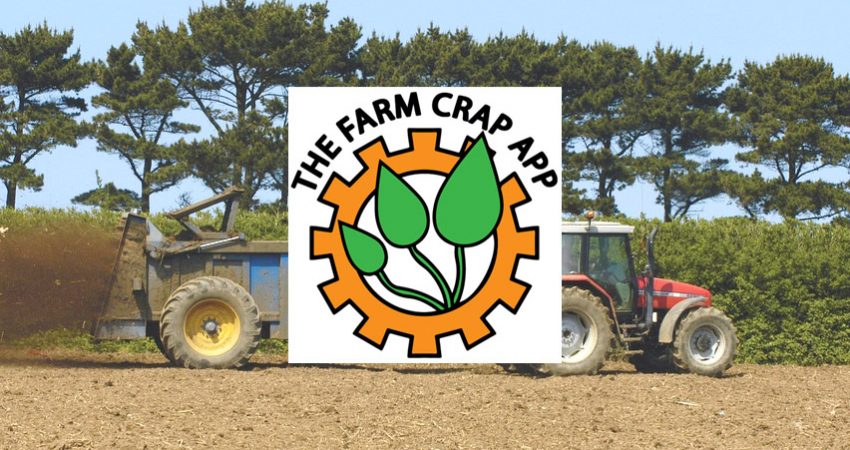
The Farm Crap App Pro
One of the best ways to improve soil health is to make the best use of organic manures. Soil organic matter boosts soil biology, and improves its physical and chemical properties, structure, root penetration and crop productivity; it’s been in drastic decline recently, but slurries and manures help to increase it.
Incorporating them into fertiliser plans saves on artificial fertiliser and reduces the overuse of nitrogen and phosphorus, thereby lowering greenhouse gas emissions and environmental impacts.
The best way to use these manures is to know their nutrient values; technologies such as mobile phone apps mean agricultural consultants, advisors and farmers can access field-level data which could dramatically improve management decisions, farm profitability and environmental quality.
The Farm Crap App Pro is a further development of the previous Farm Crap App. This version–developed via the existing relationship between Duchy College and Rothamsted Research North Wyke, in collaboration with Cornish SME, FoAM Kernow–responded directly to demand from users for a range of enhancements, from a comprehensive database of crops grown with nutrient requirements, to the facility to share results with other app users.
This upgraded version will help minimise water and air pollution across Cornwall by enhanced understanding and application of manures, slurries and other by–products, and will create new business opportunities for a wide range of other by-products / waste streams to be included within the app, which in turn helps develop the circular economy within Cornwall. Another anticipated long-term benefit is that, thanks to the app’s accumulation of data, an increasingly comprehensive bank of expertise will be available to the next generation of farm consultants and advisors, which helps towards the kind of sustainable development which recognises the needs of the economy, society and the natural environment.
As regards the here and now, however, this project has made the app more useful for farmers and advisors, and will allow for improved manure-use on-farm, positively impacting soil quality, farm businesses and the environment. And as a practical tool that will both aid compliance and be an evidence-based incentive, the app will also help further the aims of the new Environment Land Management Scheme (ELMS), particularly with regard to improved nutrient management and pollution reduction.
The app is being developed in collaboration with FoAM Kernow.
You can download the app here:
For more information about the project please contact Alex Bebbington on 01579 372370 or alex.bebbington@duchy.ac.uk
View a demonstration of the app below. Running time approx. 35 minutes
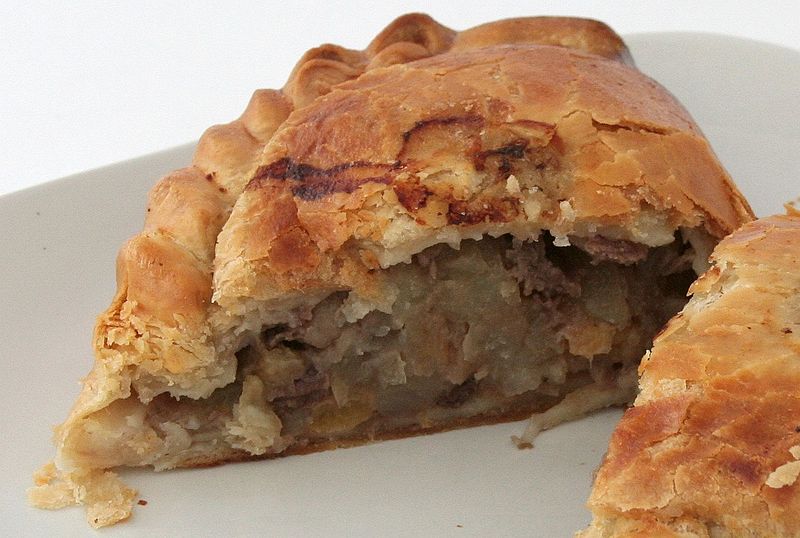
Circular and Low Impact Processed Food (CLIP)
Producing processed and manufactured foods is incredibly resource-intensive; it also accounts for a quarter of global greenhouse gas (GHG) emissions. Pressure is growing to reduce the industry’s emissions and other environmental impacts as well as its use of energy, land and water.
CLIP’s aim was to develop a tool to support these goals. It would do this using a life cycle assessment (LCA)-based approach to examine the entire food supply chain: quantifying and analysing where the ‘hotspots’ were for resource-use, carbon-output and waste-generation, and targeting them for intervention. (Those interventions might mean changing recipes, manufacturing techniques, management practices, or ingredient-sourcing, for example.) While larger food manufacturers can afford impact assessments like these, SMEs often can’t.
We wanted to work with pasty manufacturers in Cornwall to co-create the CLIP tool. Pasties generate around £300 million for the Cornish economy annually: 20% of the county’s total food and drink turnover. The tool we developed was pasty-specific but easily adaptable for use in other kinds of food production. For Cornwall, though, given this industry’s importance, the idea was to help it to achieve long-term sustainability, and to help Cornwall transition into a low-carbon, circular economy.
Brexit and Covid were significant obstacles. The former because businesses had difficulties with forecasting and staffing; the latter because efforts had to be focused on surviving rather than research. Also, staff furloughs, relying on virtual meetings, an inability to be physically present when trialling and demonstrating the tool, unavoidable delays in a Research Fellow being appointed: these factors materially affected this project and limited what we could achieve, especially as one key learning was that it’s easy to underestimate how long it can take to properly engage and co-create with businesses.
Despite this, two relatively large companies, Proper Cornish Ltd and Cornish Premier Pasties, did engage with us. They provided very useful input and both have benefitted from their involvement, mainly by understanding their products’ environmental impact and how it’s influenced by each stage of the supply chain. Proper Cornish said they “can continue to see an ultimate use for this data in the future”, which is encouraging. The project also demonstrated that the Cornish Pasty can have a smaller carbon footprint than other processed foods, and Cornish Premier Pasties agreed “it might be good for that to be more widely acknowledged.”
If you are interested, please do get in touch with us: V.Kouloumpis@exeter.ac.uk
(Image attribution: David Johnson [1] / CC BY-SA (http://creativecommons.org/licenses/by-sa/3.0/).

Fluorescence Imaging for Nutrition and Disease (FIND)
Crops and plants fail to thrive for many reasons; the FIND project’s remit was to develop tools which would manage crop and plant health, as well as diagnose problems early. To do this successfully would enable growers not only to increase productivity and reduce agrochemical use, but also to develop new crops and cultivation techniques.
Fluorescence imaging is an especially useful tool: it’sa non-invasive, image-based and continuous way to identify the threats of water-deficit, nutrient-deficiency, diseases and salinity. Diagnosing these accurately is essential, as their symptoms can look similar; they’re also globally widespread, in controlled, indoor environments, as well as field-based crops. Once you realise that–for example –up to 40% of the world’s rice crop is lost each year to diseases and pests, you understand the importance of making progress in this area.
In the project’s first stage we collaborated with Cornish companies to build the hardware to diagnose and remove diseased or unhealthy plants, and to apply fungicide or nutrients. As part of the work, we also designed and developed the software which controls all this hardware.
The project’s second phase was, inevitably, hampered by Covid and lockdown restrictions, but we still achieved our objectives and made unexpected progress in directions we hadn’t anticipated. For one thing, and as planned, we succeeded in working with businesses to (among other outputs) develop image-analysis systems and plant-sensors, enhance disease detection, as well as improve post-harvest ripening and the growth of heritage crops.
Our results also showed that image analysis could potentially be adapted to develop a cost-effective tool for businesses to monitor crop health. In addition, and related to the concept of ‘agri-pharmacy’, results showed how the use of different light conditions to enhance the production of target compounds produced quantifiable changes in plant physiology.
We also, however, ended up working with two commercial seaweed-cultivators to help with the genetic improvement of their crop, as well as the development of new products thanks to improved extraction techniques.
These were not directions we’d intended taking but, alongside FIND’s other achievements, they show that ambitious businesses are eager to collaborate and, more broadly, that well-designed hardware and software deployed in sectors keen to improve are drivers of engagement and innovation.
To find out more, please email Yve at agritech@plymouth.ac.uk or call on 01752 588341.
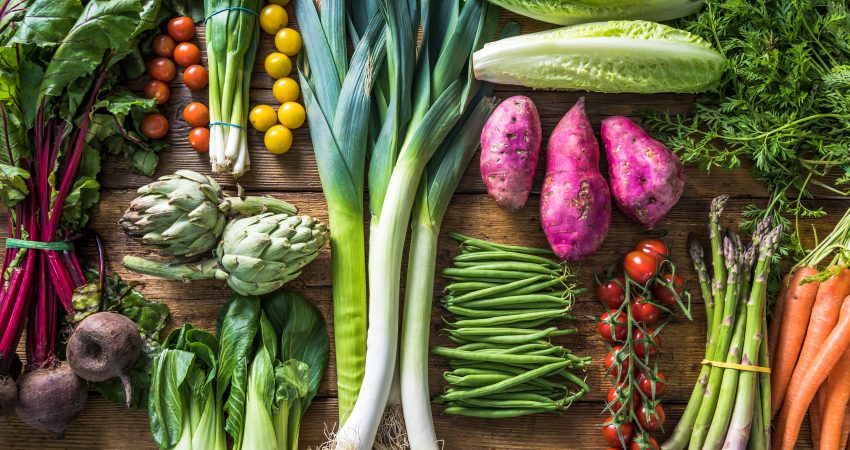
COVID-19 RESPONSE: CORNWALL FOOD & DRINK NETWORK
The Covid-19 pandemic highlighted both the fragility and adaptability of Cornwall’s food supply chains. The disparities between food production and food waste became apparent during the crisis, especially as the Cornwall food and drink sector is heavily reliant on the tourism, hospitality and leisure industries which were suddenly cut off during lockdown. Increasing supply to different sectors would diversify this reliance and could potentially improve the flow and distribution of local food and drink networks.
Researchers at the University of Exeter joined forces with the Rural Group of the Cornwall and Isles of Scilly Local Enterprise Partnership (CIoS LEP) to undertake a 12-week Agri-tech Cornwall project. The aims were: 1) investigate the potential for more local produce to be used by care homes and schools in Cornwall, and 2) help the CIoS LEP better understand how they can respond to and support the needs of the Cornish food and drink sector, including farm shops and Cornish fishers.
The findings of this project give us the opportunity to work towards greater unity in bringing together producers, distributors and consumers to increase efficiency and resilience of one of Cornwall’s greatest assets: its food and drink industry.
“This study has helped us to understand the above in great detail and will signpost many initiatives to build a stronger sector while also informing an ask of Government to put in place local powers that can best support growth.” Mark Duddridge, Chair CIoS LEP.
For more information contact: Devi Whittle, Impact and Partnership Development Officer at Exeter University, d.i.whittle@exeter.ac.uk
To view the final report on the COVID-19 Cornwall Food and Drink project, please click here.
View the survey results here.
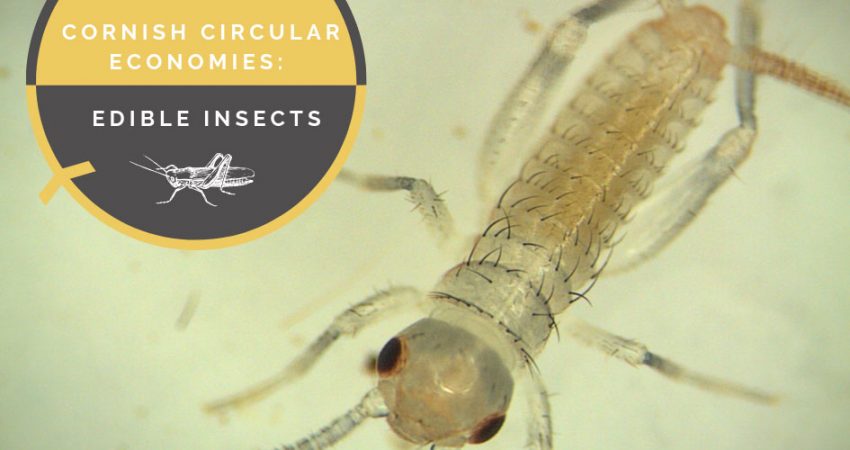
Edible Insects
Agriculture is having to deal with a rising population, a changing climate, the erosion of soil quality and land increasingly being used for housing or infrastructure.
This is the context for a billion people worldwide currently eating too little protein, with all the health ramifications that implies. The need to find new, sustainable ways to feed humans and animals is clear, and edible insects can be the answer, or an important part of it. They’re highly nutritious (for humans and many livestock species) and have a nutritional value comparable to other meat.
Producing 1kg of edible protein from insects requires much less land and water than conventional livestock need – making them cheaper to farm – and also produces lower greenhouse gas emissions. Mass-rearing costs can potentially be much lower, too; insects fed on by-products from (e.g.) retail, brewing or agriculture help reduce waste, lower costs and make circular economic business models possible.
This project saw us create collaborative networks with businesses and academics (at the University of Exeter’s Penryn Campus), and develop research expertise in farming insects, to try and put Cornwall at the centre of an industry currently in its infancy. The project was completed within the anticipated timescale and well within the allocated budget, thanks to re-purposing materials already available within University of Exeter laboratories.
The project made several key developments; we created collaborative networks between insect producers, potential customers and businesses who would like to develop innovative and sustainable ways to recycle their organic by-products. We raised the profile of insect farming within Cornwall, highlighting business opportunities, and providing legal advice and networking opportunities to recent start-ups.
Our desk study and feed trial highlighted the potential of feeding brewery by-products (from Granite Rock brewery) to G.sigillatus (crickets) and other species. This showed that brewery by-products represent a promising source of dietary nutrition for edible insects and could bring wide-ranging benefits in terms of reducing insect feed costs and managing industry waste. We also developed novel artificial diets for G.sigillatus, which we hope to share with the wider scientific community.
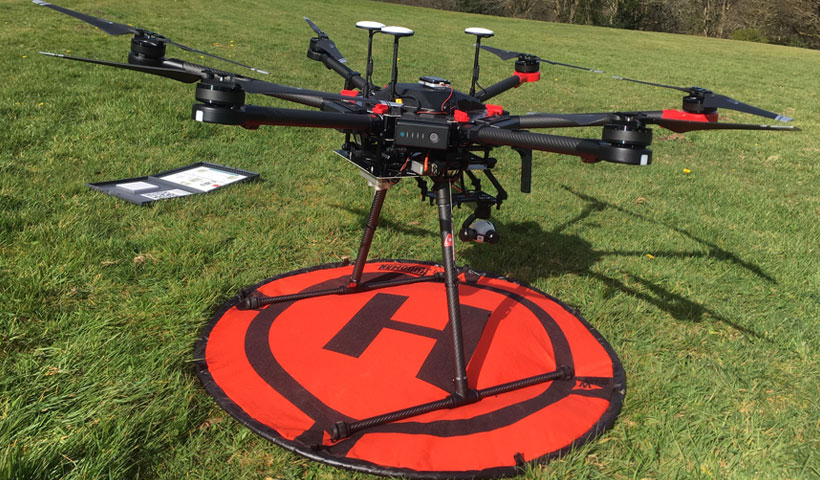
Perception Drones
A particularly interesting Innovation Grant Applicant is Mark Polson, Director of Perception Drones, based near Falmouth. Mark had his ‘Agri-tech epiphany’ whilst in discussion with an agronomist. Together they identified a satellite technology that could be made applicable on a field scale.
Using high definition sensors and specialist drone platforms, a field can be surveyed and, using precision mapping, relevant data is recorded at various stages for plant health, nutrient management and monitoring which will be referenced against growth and health indices. This technology will enable farmers and producers to have a much more in-depth picture of what is happening in a particular field or area that an agronomist might not be able to readily identify on a farm walk, increasing resource efficiency and reducing production costs. A drone can see from 40 metres above the field what an agronomist might struggle to observe from walking the field at 1.8 metres.
Mark had a prestigious career in the Royal Air Force, and several years in the marine and civil engineering sectors prior to establishing Perception Drones. Mark has a wealth of experience in avionics and electronics, and is custom building the drone platform for his Agri-tech project, to be able to get the appropriate and more importantly, relevant data and information back to the agronomist for analysing: “The agriculture industry in Cornwall is three times that of the UK average, meaning the market here is larger, and has a lot to gain in terms of improved crop management and therefore competitive advantage. This project aims not only to gather data efficiently and in greater detail than currently available, but translate it into a format that is easy to understand and action for the farmer in the field,” says Mark.
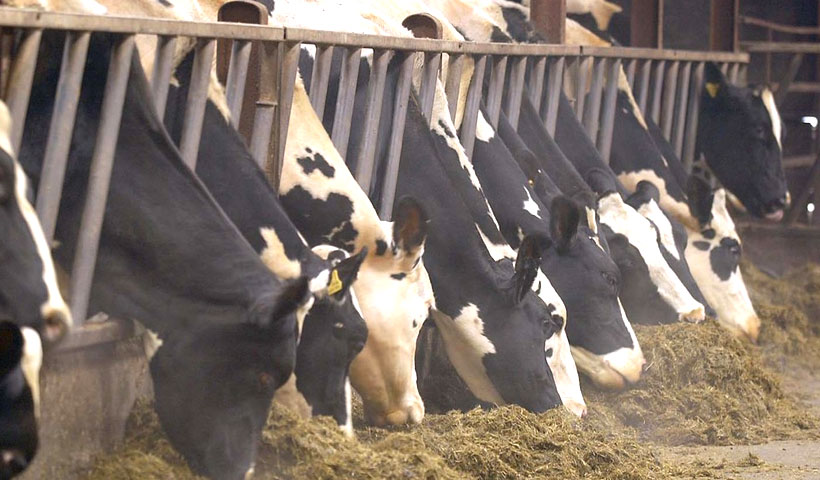
SC Nutrition
Truro based SC Nutrition Ltd provides cattle nutrition and feed advice to a cohort of Dairy and Beef farms. Steve Chapman has over 25 years’ experience in the nutrition industry, and at a recent nutrition conference in the USA one of the emergent key issues was maximising the cow’s ability to benefit from Acidified Detergent Fibre Protein (ADICP) in forage.
Steve has observed a big difference in the quality of silage being produced across Cornwall, and this is partly attributable to a variance in silage making practices, such as being left too long in the field or from the presence of air pockets in the silage clamp. Steve has liaised with a laboratory in the USA that has developed techniques in silage testing. Steve has identified one that is specifically useful to this side of the Atlantic, and this is the first time this will be used in the United Kingdom.
Funded in part through the Agri-tech Cornwall Innovation Grant Scheme, SC Nutrition Ltd., are carrying out a pilot project with 15 Cornish farmers using innovative technology which does not require a laboratory, but can be used in the field. The aim of the pilot is to analyse the levels of ADICP protein in grass silage and establish whether management practices have affected the availability of the forage protein.
Recordings of the silage will be taken just after cutting, again as the silage enters the clamp, and again 8 weeks after ensiling.
